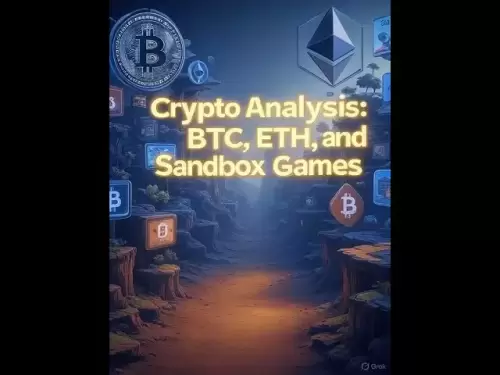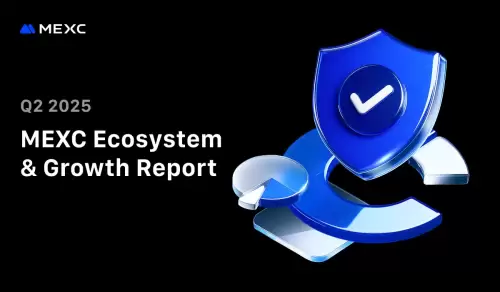 |
|
 |
|
 |
|
 |
|
 |
|
 |
|
 |
|
 |
|
 |
|
 |
|
 |
|
 |
|
 |
|
 |
|
 |
|
加密貨幣新聞文章
Thinkagents.ai Launches New Open-Source Framework for Building On-Chain AI Agents
2025/05/03 18:01
In a move that hopes to challenge Big Tech’s grip on artificial intelligence, AI agent protocol Thinkagents.ai has launched a new open-source framework for building onchain agents that operate autonomously across decentralized networks.
While traditional systems aim to restrict data ownership and platform abilities for their users, Thinkagents.ai is creating an interoperable ecosystem owned and controlled by its users. For Mike Anderson, core contributor at THINK, the Think Agent Standard is the future of AI.
Anderson and his team developed the Think Agent Standard to enable millions of autonomous onchain AI agents to transact and communicate. The protocol now has over 70 companies, like Arbitrum and Yuga Labs, on board to help out.
The platform is now live, allowing developers, enterprises and Web3 communities to experiment with the framework.
“There was always this idea that it’s so much harder to [build AI] and it’s so much more expensive when you have to build a thousand custom ways of doing it,” Anderson said during an exclusive interview with Cointelegraph. “By standardizing demand — the way people want to receive AI — you can get the whole market to line up because they want customers, and getting customers in AI is really difficult.”
Following the release of Meta’s Llama 2 a few years ago, Anderson and his team decided that if the future of decentralized AI ever manifested, they needed to ensure that consumers could easily use graphic processing units (GPUs) without spending billions of dollars.
“We watched as this whole ecosystem started to grow, with people saying, ’I’m going to build this part of the stack,’ and others saying they’ll ‘build that part of the stack,’ almost as if Amazon Web Services (AWS) showed up with each department, with one saying they’ll do the data and another saying they’ll do the networking,” Anderson said.
Developing the AI standard
The Think Agent Standard was launched by THINK protocol, in partnership with the Independent AI Institute, with the initial use case around Anderson and his team defining an AI agent (a place on a blockchain that has access to a computer and can make decisions), and the AI agents playing the video game Street Fighter 3 against each other. The use case brought nine different companies to work together for an audience of 30,000 viewers last summer.
Because if owning and controlling AI agents is to remain in the hands of users, the decentralized AI agent platforms need to be simple, user-intuitive, well-designed and deliver on a user experience that could have changed the way we use and understand social media.
Related: How Meta’s antitrust case could dampen AI development
“Imagine if we’d had the foresight in 2003 to see social media as a way to organize our lives,” Anderson said. “Instead of having accounts on MySpace, Facebook, and Twitter, what if we had a standard where your accounts follow you—where all of your data and everything you’d posted in the past is something you’re providing to them. It’s a very different thing if users owned their accounts and data and could have opted into seeing ads where they would benefit from them. That’s what we’re building.”
The future of AI agents
Just as the ERC-20 standard enabled the tokenized economy, the Think Agent Standard introduces a modular, permissionless and composable system that allows AI agents to function as sovereign digital entities: Owning wallets, interacting with smart contracts and transacting seamlessly across every blockchain.
Each Think agent is powered by Non-Fungible Intelligence™ (NFI), a digital identity layer that establishes ownership, memory, and authentication, with the core genome palette residing on The Root Network and subsequent layers deployed to any connected network natively.
The agents are composed of three core elements: The Soul (NFI), which provides a persistent, self-sovereign identity; the Mind, which governs behavior and decision-making; and the Body, which allows interaction across platforms and environments.
The first platform built on the Think Agent Standard is SOULS, a personal AI agent that users can own, train and customize. SOULS connects to thousands of open-source applications and evolves over time by integrating the best available intelligence without compromising user privacy or ownership.
Related: Crypto projects prepare to battle for privacy in Switzerland
Leading organizations in gaming, infrastructure and generative AI, including Yuga Labs, Futureverse, Alchemy, Render, Venice.ai and Magic Eden, are actively integrating the standard into real-world applications, further validating its potential across use cases.
“AI agents are the new interface to technology,” Anderson said. “What we’ve been able to do successfully is partner with consumer brands — like Bored Ape Yacht Club — to actually have distribution into a consumer’s end point, and we’ve been able to build all the systems so that they can actually access consumers.”
For Anderson, a personal AI agent is like a personal dashboard
免責聲明:info@kdj.com
所提供的資訊並非交易建議。 kDJ.com對任何基於本文提供的資訊進行的投資不承擔任何責任。加密貨幣波動性較大,建議您充分研究後謹慎投資!
如果您認為本網站使用的內容侵犯了您的版權,請立即聯絡我們(info@kdj.com),我們將及時刪除。
-

- 特朗普,家族企業和權力:衝突的新時代?
- 2025-07-18 20:30:12
- 探索特朗普,家族企業和權力的交匯處,檢查潛在的利益衝突和加密貨幣的興起。
-

- 特朗普,商業和比特幣:加密資本家的願景
- 2025-07-18 20:40:12
- 探索特朗普的加密貨幣立場,星球風險投資的比特幣戰略以及USDC的興起 - 數字金融的地震轉變。
-

-

-

- 十六進制信託和阿爾戈蘭:機構放養獎勵是中心舞台
- 2025-07-18 19:50:13
- Hex Trust擴大了其Algorand合作夥伴關係,提供機構的積分獎勵,增強了Algo的看漲勢頭和Defi的採用。
-

-

- Defi Lending,Fintech和Morpho:一個新時代?
- 2025-07-18 19:50:13
- 探索Fefi Lending,Fintech和Morpho聯合創始人對財務未來的見解的融合。
-

- 以太坊,萊特幣和機構加密貨幣:有什麼交易?
- 2025-07-18 19:55:13
- 以太坊ETF正在激增,Litecoin的ETF批准和減半,機構正在潛水。讓我們分解趨勢及其對您的含義。
-






























































